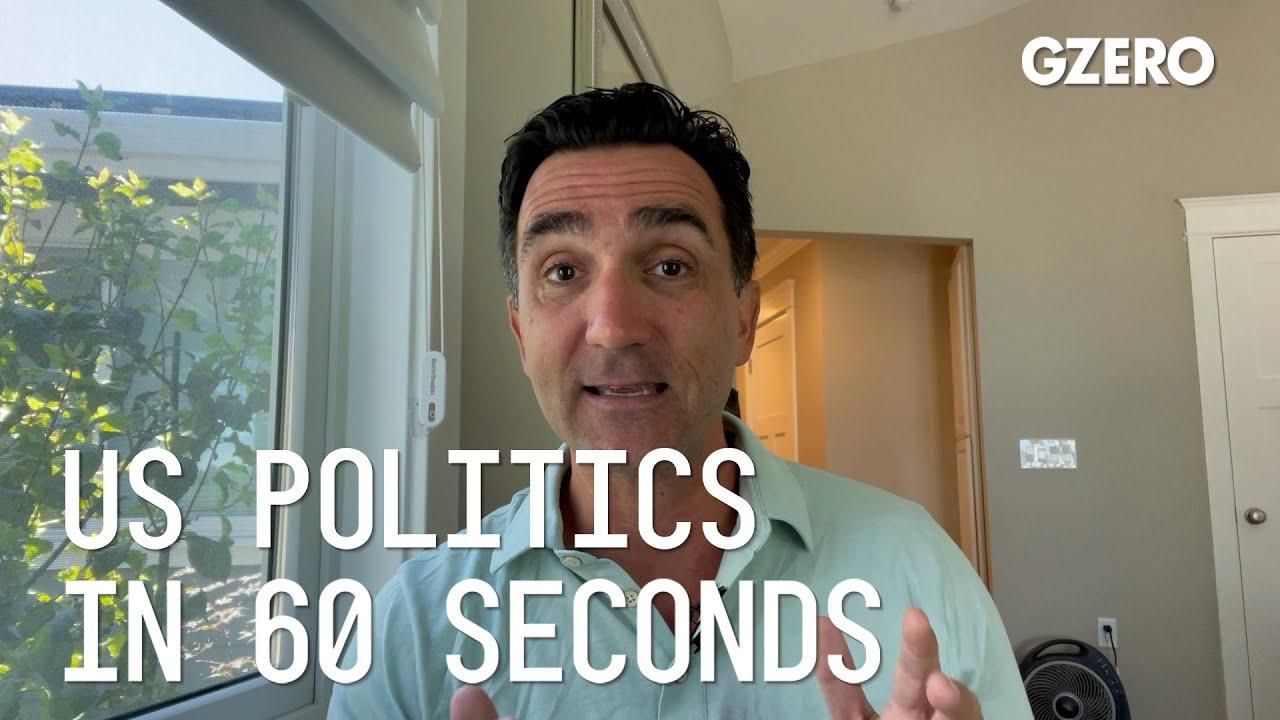US Politics In 60 Seconds
West Virginia v. EPA ruling hampers climate change action

West Virginia v. EPA Ruling To Affect Climate Change Regulations | US Politics In :60 | GZERO Media

Jon Lieber, head of Eurasia Group's coverage of political and policy developments in Washington, DC, shares his analysis on US politics:
This week's question, what are the implications of the Supreme Court's decision in the case of West Virginia v. EPA?
It's been a busy term for the Supreme Court, topped off this week with a ruling on the EPA's ability to regulate carbon emissions under the Clean Air Act.
The Supreme Court ruled that the EPA did not have the properly congressionally delegated authority to regulate carbon emissions. This will hamper the ability of the Biden administration to act on climate change in the absence of congressional action, which we do not expect. And more broadly could have implications for other agencies, such as the Securities and Exchange Commission and the Federal Trade Commission.
At issue is the agency's ability to regulate in cases where Congress has not specifically laid out that they should. This is known as delegation from Congress to the agencies. And in the past, the courts have given the agencies wide latitude to pass new rules in cases where congressional statutes were ambiguous.
However, under the more conservative courts that were appointed by President Donald Trump, the courts are turning back these abilities. And a concurring opinion by Justice Neil Gorsuch laid out a series of tests that limit the ability of agencies to act.
The conservatives think that courts have allowed agencies to have too much power and would prefer to see those powers concentrated in the hands of the elected representatives in Congress. Liberals argue that the administrative state requires specialized expertise to create complex rules to regulate industries that cannot be administered properly by the more political branches of government.
This will affect not only regulations dealing with climate change, but also future workplace safety regulations, such as the vaccine mandate that President Biden tried to force on large employers earlier this year, the SEC's ability to force disclosures of climate risk by publicly traded companies, and rulemaking that the Federal Trade Commission hopes to do. They're pushing data privacy standards and break up highly concentrated industries.
More broadly, with this decision and the decision to overturning Roe v. Wade, the court has indicated that it is willing to overturn years of precedent and set US policy making on a fundamentally different and more limited path.
When Japanese Prime Minister Sanae Takaichi called snap elections last month, it was a big gamble. Holding a winter election just four months into her tenure with no real policy record to run on?
Tune in on Saturday, February 14th at 12pm ET/6pm CET for the live premiere of our Global Stage from the 2026 Munich Security Conference, where our panel of experts takes aim at the latest global security challenges.
Microsoft unveiled a new set of commitments guiding its community‑first approach to AI infrastructure development. The strategy focuses on energy affordability, water efficiency, job creation, local investment, and AI‑driven skilling. As demand for digital infrastructure accelerates, the company is pushing a new model for responsible datacenter growth — one built on sustainability, economic mobility, and long‑term partnership with the communities that host it. The move signals how AI infrastructure is reshaping local economies and what people expect from the tech shaping their future. Read the full blog here.
The Israeli government unilaterally passed measures that allow Jewish settlers to purchase land in the West Bank, overriding past laws that effectively banned the sale of property there to anyone other than Palestinian residents.